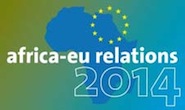An ECDPM Briefing Note released this week entitled “Where is the Paris Agenda heading? Changing relations in Tanzania, Zambia and Mozambique” by Bertil Odén and Lennart Wohlgemuth analyses how the Paris Agenda on Aid Effectiveness was translated into action in three of the most engaged countries in Africa. The authors argue that inherent contradictions between partners need to be dealt with in order to achieve aid effectiveness objectives. On the donor side, these include the increasing concentration on short-term quantifiable results, the tendency for micro-management and over-optimistic expectations on the speed of agreed reforms. And ...
The European Commission published a staff working paper on 16 February outlining the priority issues that could form a common EU position at the 9-13 May LDC-IV Conference. The EC says the conference should be results-oriented and suggests that the focus should be on improving the efficiency and effectiveness of existing mechanisms and fulfilling existing commitments, by both development partners and LDCs. The outcome of the September 2010 Millennium Development Goals Summit should be used as a framework to accelerate poverty eradication and more emphasis should be placed on the process of graduating from the ...
The Implementation Plan published on 16 February is intended to become a tool for increased EU aid effectiveness and coordination in disaster risk reduction (DRR) support for developing countries. In line with the objectives of the EU DDR Strategy, the plan aims to bring DRR and its linkage to climate adaptation more strongly and systematically into the development field in order for DRR to become a commonly used approach in the fight for poverty reduction and sustainable development. The disasters targeted are those caused by natural and technological hazards. Consideration is given to both slow- ...
Click here to read the contributions made to the European Commission’s consultation on EU development policy in support of inclusive growth and sustainable development - increasing the impact of EU development policy. Click here to read the contributions made to the consultation on the future of EU budget support to third countries. The EC Communication on increasing the impact of EU development policy is expected to be published in June. The Communication on budget support is expected in the second half of this year.
The European Peacebuilding Liaison Office (EPLO) applauds the creation of the European External Action Service’s Directorate for Conflict Prevention and Security Policy and within it a Peacebuilding, Conflict Prevention and Mediation Unit, but calls for the allocation of more staff to the unit to enable it to fulfil this role. EPLO also calls for the unit to be more integrated with the other EU bodies which play a role in conflict and security policy.
This World Bank Economic Premise note by Milan Brahmbhatt and Otaviano Canuto considers the growing convergence between human rights and development thinking along several dimensions, particularly on social and economic rights. It also examines the continuing areas of difference and of outstanding or open questions. The authors then ask what the dialogue between human rights and development can contribute to furthering progress on the MDGs.
This report by consultant Penny Davies commissioned by the OECD Development Assistance Committee for its Working Party on Aid Effectiveness considers the role of the private sector in development and in aid processes in particular and offers suggestions for ways forward directed at different stakeholders. It examines partner country priorities and challenges in ensuring a positive contribution of the private sector to national development plans and the role donors play in supporting positive private sector contributions. The report also explores what makes public-private partnerships work effectively. It also addresses the issues of how to measure ...
The Trade Law Centre for Southern Africa’s (Tralac) Gerhard Erasmus’ briefing paper entitled “What to do about Sovereignty when Regional Integration is pursued?” argues there is room for debating sovereignty issues in a world of globalisation and deeper regional integration, but that the debate should address questions about the allocation of specific powers. In his second paper, entitled “Decision-making in Regional Organisations”, Erasmus argues that if a decision-making process is properly prepared and guided by the necessary procedures, the discussion itself is more structured, will produce clarity and will avoid uncertainties when it comes to ...
This vox column by economists Ivan Cherkashin, Svetlana Demidova, Hiau Looi Kee and Kala Krishna outlines research explaining why EU and US preferential market access regimes resulted in not only increased exports from beneficiaries to the EU and the US, but also to other markets. The research counters arguments that preferences divert trade to the preferred market and shows that trade preferences can increase trade for the provider country, the receiver country, and other trading partners as well.
This study by Sven Grimm and colleagues from the German Development Institute shows that Rwanda’s government, despite its aid dependency, demonstrates strong ownership of its development agenda. The government, however, has clearly not been successful in integrating China into its aid coordination architecture according to the authors. The study argues that the lack of integration of non-OECD Development Assistance Committee (DAC) development partners – not least so China – is a major challenge to the country’s aid architecture if the leverage over DAC partners is to be maintained. Recommendations are made to each of the ...

















